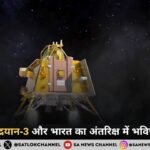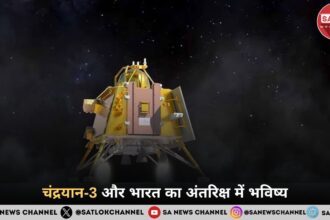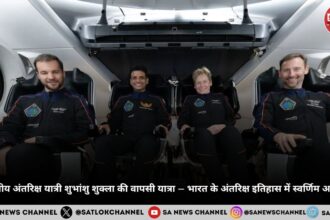Hyderabad-based Techme2Space is set to launch MOI-TD, representing India’s first AI lab in space. Scheduled for mid-December 2024, the launch will use ISRO’s PSLV C60 rocket and aims to make space research more affordable and accessible.
Objectives of MOI-TD
MOI-TD aims to demonstrate real-time data processing in orbit, addressing challenges in satellite operations. Satellites generate vast amounts of data daily, much of which becomes unusable due to factors such as cloud cover. Processing this data on Earth is time-consuming and costly. MOI-TD reduces transmission costs and delays by processing data in space, thereby improving efficiency.
Support and Development
The development of MOI-TD was supported by IN-SPACe, a government agency that promotes private space initiatives. IN-SPACe provided advanced facilities at its technical center in Ahmedabad. This collaboration significantly enhances the capabilities of the mission.
User Interaction via OrbitLab
Users can interact with MOI-TD through OrbitLab, which allows them to upload AI models. Applications include environmental monitoring, forest management, marine activity observation, and greenhouse gas detection. For example, users can track forest harvesting. The platform has partnered with a Malaysian university and has attracted participants, including Indian school students.
Which Is the Most Advanced Satellite?
Designed in the UK and built in Toulouse by Airbus Defence and Space, the I-6 satellites are the world’s most technologically advanced commercial communications satellites ever launched.
Advanced Satellite Features
MOI-TD incorporates advanced technologies, including AI accelerators and onboard computing. Reaction wheels and magnetorquers enhance satellite control, while flexible solar cells power future satellites. The satellite is based on successful radiation shielding technology tested in previous missions.
Also Read: SpaceX to Launch ISRO’s GSAT-N2 Communication Satellite
Focusing on Earth observation, MOI-TD sets the stage for space-based computing. While current systems are more expensive than Earth-based alternatives, they promise long-term savings and environmental benefits. This mission is a significant step toward establishing data centers in space and expands opportunities for innovation in space exploration.
FAQs
Q. Who was the father of Indian space science?
Ans: Dr. Vikram Sarabhai, the father of Indian space science and founder of the Indian Space Research Organization (ISRO), was awarded the Padma Vibhushan.
Q. Who was the father of ISRO?
Ans: Vikram Sarabhai.
Q. Who is called the father of India’s space program?
Ans: Vikram Ambalal Sarabhai.
Q. Who is the Space Minister of India?
Ans: Dr. Jitendra Singh.
Q. How many satellites does India currently have?
Ans: India currently has 61 active satellites.









